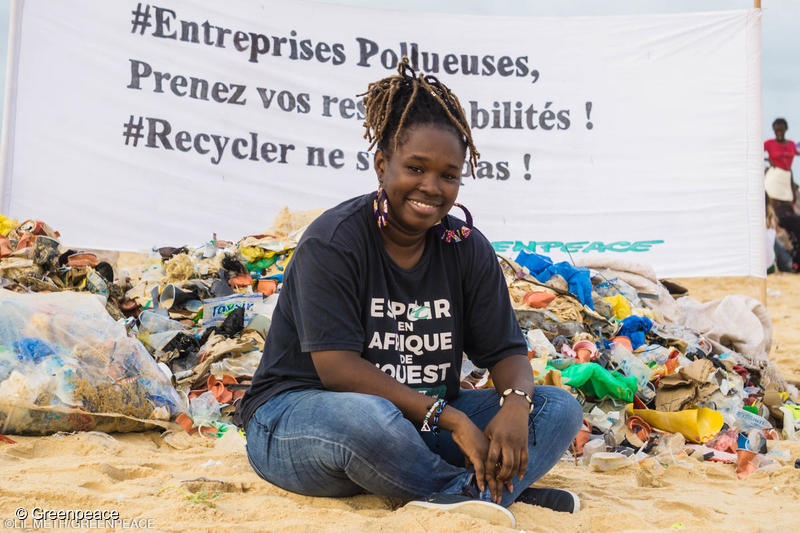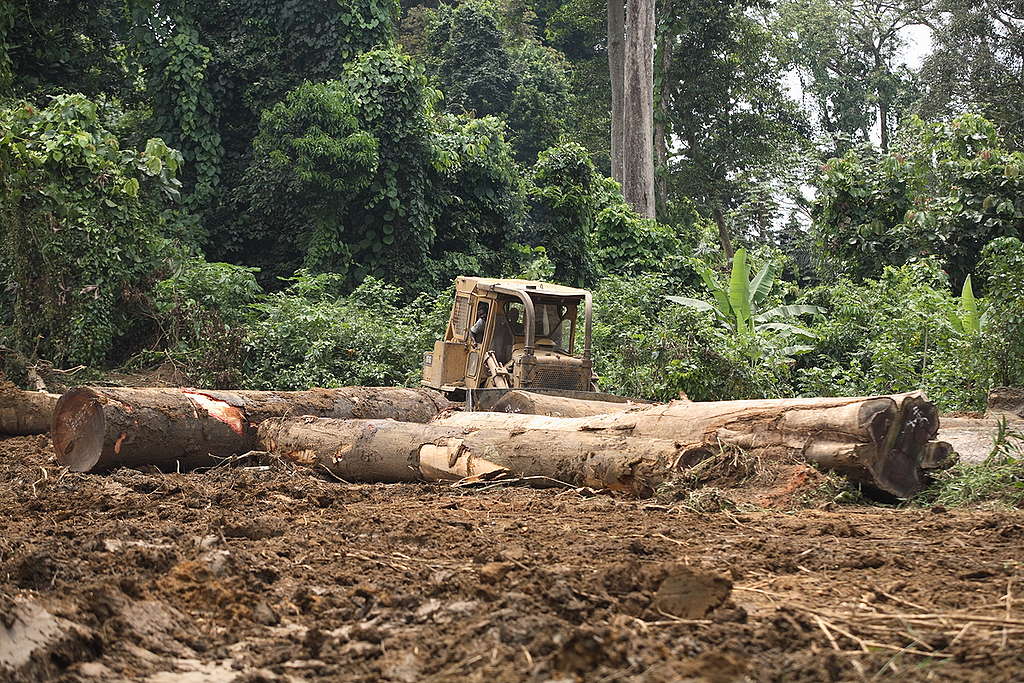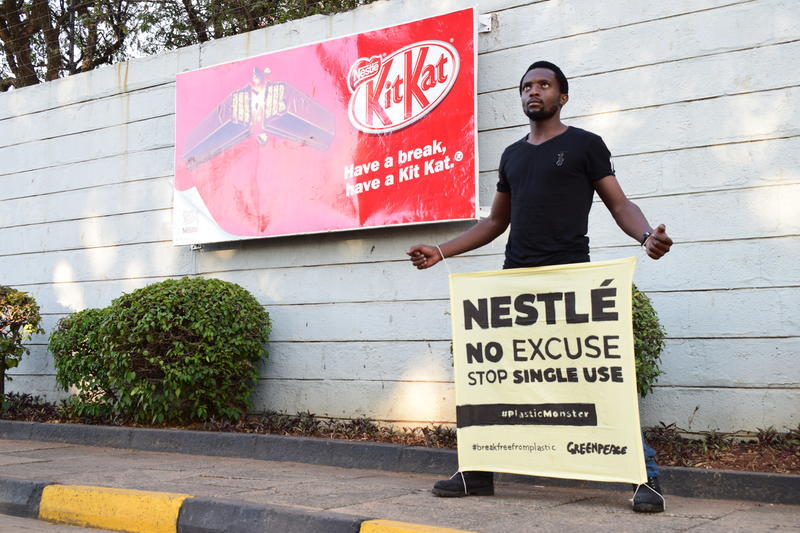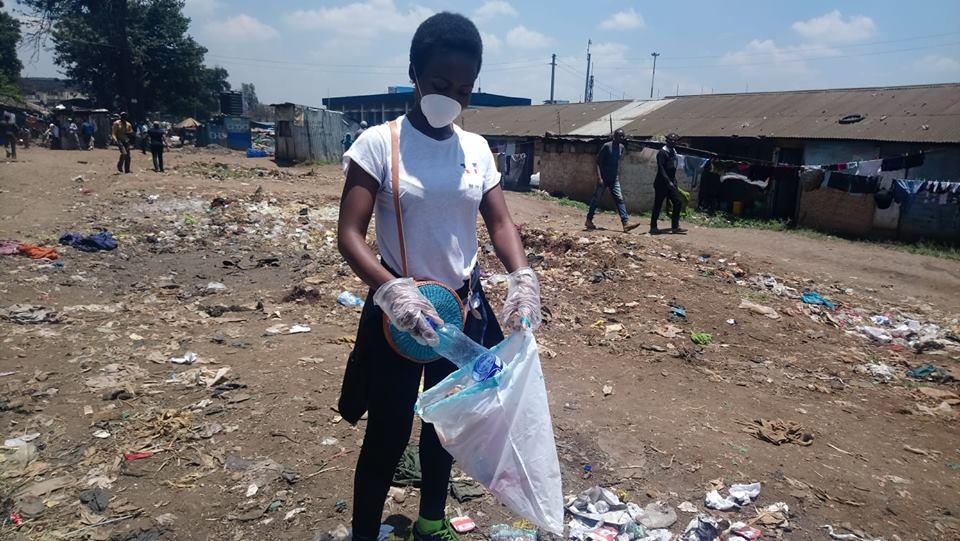Greenpeace Africa Campaigner Awa Traoré explains why substituting single-use plastic with paper is a “false solution” to the plastic pollution crisis

Paper is a “False Solution” to the Plastic Pollution Crisis
Recently, I have noticed that the debate on plastic pollution has taken a different turn. When some civil society actors are trying to find alternatives for cleaning, recycling and reusing plastic, others are looking at traditional alternatives (others swear by “false solutions”). Alternative bags in woven loincloth or rafia, or the use of calabashes, as baskets for the housewife which, in its time, constituted the little jewel of the market of our grandmothers and mothers of the time.
However, today we have to face the facts. Despite all this goodwill, citizen actions and eco-responsible initiatives, it must be recognised that all these positive energies combined will not succeed in resolving this plastic danger alone and effectively. As long as the companies responsible for this plastic crisis do not take action by stopping the massive production of this toxic substance, biodiversity, the urban landscape, the oceans, the ecosystem in general will continue to be threatened and degraded.
Currently, some consumer products companies are trying to solve their plastic problem by moving their disposable packaging from plastic to paper – one such false solution to plastic pollution. These companies consider the replacement of plastic with paper as an innovative alternative and a positive action which deserves to be praised because paper has long been considered as an ecologically sustainable material. In reality, however, this change is problematic.

The False Solution’s impact of forests
Forests play a unique role in supporting a wide range of biodiversity, removing and storing carbon, providing livelihoods and livelihoods for indigenous peoples, and providing a range of ecological services that help preserve life. The pulp and paper industry is responsible for significant environmental impacts, including climate change, because logging and large-scale industrial tree plantations cause natural degradation of the forests, emitting huge amounts of CO2. Paper is, therefore, a false solution to plastic pollution because it curbs one problem to perpetuate another.
The pulp and paper industry is responsible for significant environmental impacts, including climate change.
In the race to limit global warming to 1.5 degrees Celsius, reducing emissions is not enough. We will also have to remove huge amounts of carbon dioxide from the atmosphere. The most effective ways to achieve this are to preserve our forests by avoiding all forms of deforestation, restore degraded forests and reforest large parts of areas lost in the past. This is fundamentally incompatible with an increase in logging and industrial plantations.
Although paper has been recycled for centuries, current paper recycling systems fail to provide sufficient quality recycled fiber in many countries, in part because of contamination in the recycling stream, prompting municipalities to incinerate or landfill large quantities of paper collected for recycling. There is no viable way to promote this false solution as an alternative to single-use plastic.

Real Solutions NOT False Solution
Large consumer goods companies that have announced the move to paper packaging do not appear to be aware of these limitations; none of them has committed to sourcing exclusively post-consumer recycled fiber, and many are unaware of the future recyclability of their paper packaging. This means that moving from plastic to other forms of single-use packaging will not solve the plastic pollution crisis. To cope with this global crisis, companies such as Nestlé, PepsiCo, Procter & Gamble, Coca Cola, etc. urgently need to reduce the number of disposable packaging units they sell, and abandon their single-use model and false solutions.
Compostable, biodegradable, recyclable … for years, companies have asserted that these “innovative” solutions respond to the plastic pollution we face. But they are wrong. What they promise are bogus solutions that don’t work, they urgently need to reduce the amount of disposable packaging they sell and invest in reuse and refill/ refill by eliminating unnecessary and excessive packaging such as coffee capsules, for example.
Any solution to the global plastic pollution crisis should contribute to a “just transition” to a plastic-free economy. It is, therefore, time for these companies that claim to be a part of the fight against plastic pollution to realise that to truly help, they need to stop investing in the false solutions.
Awa Traoré Greenpeace Africa Campaigner based in Dakar, Senegal. She is the campaign lead for our plastics project.
 Get Involved
Get Involved

Discussion
good day, im looking for voluntary work out of south africa
Hi Meriam please click on the link to view and apply for available vacancies https://www.greenpeace.org/africa/en/job-board/.